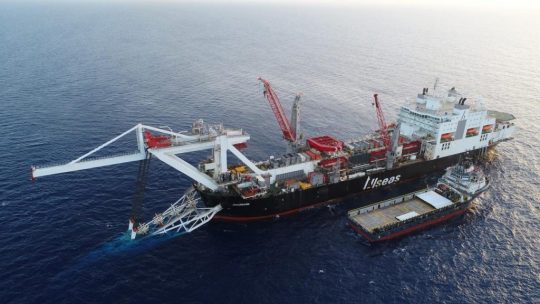#USHegemony
Text
The War on Drugs is not metaphorical, and actually consists of a set of undeclared conflicts fought domestically by the police against the general population and its irregular fighters, and internationally by US intelligence services in conjunction with the various fascist dictatorships that the US establishes and maintains around the world.

#racismo#uspolitics#AmericanFascism#Duopoly#PoliceState#wod#warondrugsisafailure#thewarondrugs#USHegemony#americanhistory#USEmpire#US Authoritarianism#USAmerica#Fascism#PoliceKillings#colombia#Nicaragua#IranContra#Iran#TheContras#thenewjimcrow#deathsquad#Reagan#mexicancivilwar#GuerraCivil pero el otro#Guatemala#bananarepublic#history#historical#USAuthoritarianism
3 notes
·
View notes
Text
The US: The Benefits of Hegemony in a Challenging World
#globalpower #internationalrelations #superpower #USHegemony #worldorder
0 notes
Text
5 big defeats for Trump's America


Donald Trump made it a banner promise of his presidency to stop the US being abused as the world’s “piggybank” – but not all foreign powers seem to be cowed into submission by his assertive style of foreign economic policy.
The United States remains the world’s second-biggest exporter after China, but these five cases show that it can’t always get its own way – even among its allies. Is this a consequence of Trump’s personal abrasiveness, a period of painful adjustment before the giant rouses, or perhaps a harbinger that the rest of the world no longer needs America as much as it used to?
No US alternative to Huawei

Washington tried to scare other Western countries into dropping a Chinese telecom giant from supplying 5G network equipment, claiming Beijing could capture any data transferred through Huawei devices “at will.” But both Germany and the UK refused to bar Huawei from participating in tenders, with Berlin publicly rebuking Washington by saying that it has its “own security standards.”
The impact will be massive: the super-fast network will power not just telephones and computers, but likely any piece of sophisticated electronic equipment in your home for years to come.
Did Washington fail because the case made by its officials appeared to be based entirely on evidence-free hypotheses, to follow other red scares of various hues? Or was it because the US has no 5G provider of its own to match up with the might of Huawei, on which countries around the world have become increasingly reliant?
Brussels sets trap for tech giants

The EU led a futile crusade to dismember Microsoft in the 1990s, but the assault on American tech giants by European lawmakers both in Brussels and through national governments is on an entirely different scale.
From trying to regulate Facebook and Twitter’s content monitoring to Amazon’s tax practices to harrying Google for abusing its dominant position and levying a record $5 billion fine, the European Union has set itself up for years in the courtrooms against the American giants’ legal teams.
Ironically, with its hunt for Russian trolls and fake news, the US has done more than any other country to tarnish the image of its own companies, meaning that almost any measure against them, however punitive or unrealizable, will be met with no resistance from the public.
Uber not (always) welcome

If the battle against the EU is a grand strategic campaign, the difficulties faced by US peer-sharing companies like Uber and Airbnb are more akin to a street-by-street city battle, and for every new market they have cracked, a lucrative one wipes out their business at the stroke of a single vote or edict.
Uber is currently locked out from markets as diverse as China, Turkey, and much of the European Union, while new labor regulations elsewhere could lessen its advantage versus traditional cab providers. Meanwhile, Airbnb struggles with push-back in many of the world’s most popular destinations, including Paris, Barcelona, Los Angeles and Japan.
Worst of all, rather than being regarded as innovations that make life easier – which they often do for the end consumer – these unicorn disruptors are increasingly being treated as law-skirting, employee-abusing parasites.
Nord Stream 2 goes ahead

The US is betting on liquefied natural gas (LNG) becoming the world’s top fuel by the end of the next decade. But to propel itself to the top of the new export industry, which requires heavy investment in infrastructure for a product that is not always competitively priced, the US has had to use all of its economic and lobbying prowess.
So every one of the dozens of times Donald Trump – with backing from draconian Senate legislation – has insisted that Germany must abandon its Nord Stream 2 project with Russia, he has not just been fearing the Kremlin’s hold over Berlin, but propping up American LNG exporters. Germany has held firm, preferring to divorce house heating from politics and US interest.
And now a 10 percent tariff imposed by China – which is something of a running theme here – has also resulted in the postponement of the construction of at least one major facility in the US. Washington will argue that this is a hitch on its way to unstoppable domination of a boom industry, but the road ahead for American interests will be full of unexpected obstacles, many of them self-inflicted, others inevitable.
S-400 v F-35

The US, the top global weapons exporter, has long been able to rely on its supplies to military allies as a reliable income stream. Which is why the American suspension of its F-35 supplies to Turkey – in protest against its purchase of Russia’s S-400 missile defense system – provokes concerns that go beyond the monetary.
If more allies – particularly non-NATO states such as Saudi Arabia – drop their cast-iron loyalty to American weapons and look for options that are better value for money, this could force the US government to spend even more money propping up its successful but complacent giants like Lockheed Martin and Boeing (which has other problems of its own recently).
More concerning still is that while NATO countries continue to lag in their defensive spending, the countries where defense budgets are ballooning fastest, China, India and Russia, are either not dependent on American supplies, or actively opposed to them. Whereas 25 years ago it looked like all of the major economies would eventually join America’s world order, it now looks like the other hemisphere is forging its own path.
Read the full article
0 notes
Photo

Hope you all had a great Easter break! My solo show Edel Assanti has been extended to and including 20th April. / Gordon Cheung in conversation Paul Hobson, director of Modern Art Oxford https://www.youtube.com/watch?v=ze5vjpNlSwM&t=2s / Will Davie's Aesthetica magazine article http://www.aestheticamagazine.com/pictoral-deconstruction/ / The Learned Pig asked me some questions about my solo show Edel Assanti http://www.thelearnedpig.org/gordon-cheung-known-unkno…/4506 / #GordonCheung #Glitch #GlitchArt #Painting #Art #soloshow #SoftPower #propaganda #geopolitics #SouthChinaSea #UsHegemony #NewWorldOrder #Empire #Imperialism #slavojzizek #edelassanti (at Edel Assanti)
#glitch#softpower#empire#art#imperialism#soloshow#newworldorder#gordoncheung#edelassanti#slavojzizek#geopolitics#ushegemony#glitchart#propaganda#painting#southchinasea
0 notes
Text
The end of the petro-dollar no longer unthinkable

The Mises Institute asked the question last September: “What indications are there that the world is turning its back on the US dollar?” – It did, in fact, answer that question (below), but here are just some of the more recent moves that just six months ago would have seemed unlikely.
This year China finally launched a yuan-dominated oil futures contract after nearly a dozen false starts over a decade. With that approval, the “petroyuan” became real and China set out to challenge the “petrodollar” for dominance.
Russia was already transacting oil in rubles and been working up those trades since 2015 as a result of sanctions imposed by the West.
The EU has made arrangements recently to settle Iranian oil trades in euros as a direct result of Washington withdrawing from the Iran nuclear deal.
Then, just last week India agreed a deal to pay for Iranian oil in rupees as the two countries seek to bypass the US economic pressure on Tehran.
China is the world’s biggest buyer of oil, America is the second and India is the third. Whilst the USA buys about $110 billion of oil each year – China and India combined – buys nearly $200 billion. The EU including Britain buys another $200 billion.
Now, it is reported in the New China Daily that:
“There has been a general consensus among some eastern and southern African countries that there should be more usage of the Chinese yuan in the African region because of China’s growing influence in business and trade.”
Executive director of the Macroeconomic and Financial Management Institute of Eastern and Southern Africa (MEFMI) Caleb Fundanga said a forum for financial experts earlier in the week had agreed that there was need to use the Chinese yuan as a reserve currency because China was playing an active role in their economies.
The forum was attended by deputy central bank governors and deputy permanent secretaries of finance from 14 countries that fall under MEFMI.
“The general conclusion is that we should use the yuan more because its time has come. We are doing more business (with China) so it’s natural that we use the currency of the country with which we are trading.
“Just the way we have been using the (U.S.) dollar and the Euro, we want to use the Chinese currency more in our transactions because it is to our benefit,” Fundanga said.
He also said use of the yuan could protect the region from currency volatilities. It was also agreed that the use of the yuan would came in handy because China was giving loans to the region and other African countries.
Fundanga said there was also discussion on possible currency swaps the same as what China had achieved with Nigeria, where Nigerians travelling to China could easily access the yuan from their local banks.
MEFMI argues that the bulk of reserves for most countries in the region are invested in U.S. dollars, yet their composition has not kept pace with the large shifts in the world economy. This is particularly so since China and India continue to shape global economic trends as they remain major trade partners for the region.
MEFMI countries comprise Angola, Botswana, Burundi, Kenya, Lesotho, Malawi, Mozambique, Namibia, Rwanda, Swaziland, Tanzania, Uganda, Zambia and Zimbabwe.
It is clear that de-dollarisation is escalating for one reason or another and as a result, America is in a much weaker position to demand USD trades, which it has done for decades. And just how important are oil trades in USDs?
Back to the Mises Institute.
“The mechanism underlying today’s “dollar standard” is widely known and the term “petrodollar” describes it well. This system is based on an informal agreement the US and Saudi Arabia arrived at in the mid-1970s. The result of this deal: Oil, and consequently all other important commodities, is traded in US dollars — and only in US dollars. Oil producers then “recycle” these “petrodollars” into US treasuries. This circular flow of dollars has enabled the US to pile up a towering mountain of debt of nearly $20 trillion — without having to worry about its own financial stability. At least, until now.”
The process of moving away from the dollar — prepared by Europe and triggered by China and Russia — can no longer be stopped.”
Read the full article
0 notes